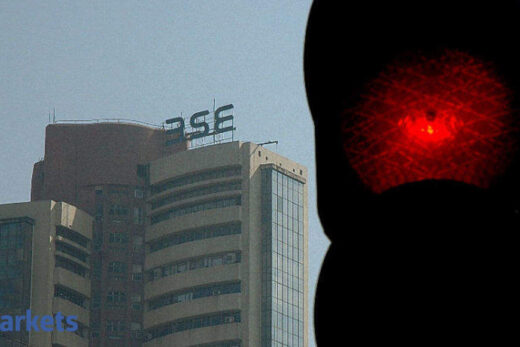How should one read the market because those who are participating, are making money but like all fairy tales, one day this market fairy tale will also end. What should be the basic advice?
There are two things going on; one is growth and the second is valuations. Global growth is strong and the US in particular has been very strong. Employment has been full employment. Companies are finding it really hard to find employees. Wages are going up and consumer demand is back and so growth has been strong. Also, liquidity has been strong and has supported growth but it is also supporting market participants.
In India, growth has lagged some of the developed markets because of the impact of Covid and lockdowns. But it has started picking up now. Liquidity in India has also been fairly benign, and not as strong as what we have seen in the US. Now, we are looking at markets. So while growth is recovering in India, valuations in some companies and in the markets have anticipated this and run ahead of the growth picking up.
While things will improve in the real economy, the real question is can markets continue to keep and sustain this kind of rally? One has to get very selective because as growth picks up, then liquidity does not need to be so strong and we will start seeing withdrawal of some liquidity. Valuations of companies have in some cases gotten stretched, but there is still opportunity in other companies. It is interesting that a lot of stocks are up several thousand percent but are some stocks that are pretty flat over the last 12-13 years and one can find opportunities if those companies are still strong and can grow.
There are two ways of looking at this market – start doing treasure hunting in stocks which have not moved whether it is real estate or names like ITC or old economy stocks and the other parallel economy which is getting created which has fintech and consumer tech companies which are going public. Where would you focus — value buying or growth story?
At this point of time, value buying. If one wants to be in the markets and wants to capture every little gain that might be left, one can never tell when the party might stop but while it looks like the party is still on, one should definitely do value buying. But at the same time, there is opportunity in the fintech space for two reasons. One, India is a leader now in fintech or payments. I would not say it is the main leader but it is up there. Every country has developed its own unique differentiation in terms of the digital space and India seems to have done that on the payment side.
Also if one looks at what is happening to the China tech and regulatory environment, there things have suddenly gone sour for the startup and the tech world and therefore investors are looking for other places to invest. The US technology sector has boomed, Indian IT companies have done well but the Indian fintech space is only now getting ready for IPOs.
There is opportunity there from the fact that liquidity is coming in, investors are coming in and it is tricky to value some of these companies because there are no real peers. If one finds any peers globally, then the valuations can look a little crazy but I still think that liquidity will keep some of these sectors buoyant for some time. But I would not think that they will keep going up and up. One has to be very careful.
Have you participated in any of the big bang IPOs? Zomato got listed with lot of fanfare. A slew of niche businesses like Nykaa, Policybazaar, Byju’s IPOs are in the pipeline.
I am a little worried about some of the valuations but having said that, I am also on a board of couple of these fintechs that are coming out and I do not think I am in a position to comment on those. But given the fact that I am on the board, obviously I do feel that these companies are well managed and well positioned and have long-term opportunities.
What then does it tell you about the texture of the pure play IT services companies like TCS, Infosys, HCL Technologies and Tech M?
That is a secular growth story. The demand for digital transformation is very much in place and the demand is going to keep growing. I think the Indian IT services are well positioned. We have a competitive edge. We have now got well entrenched into the global ecosystem as companies that can execute well. The demand will keep coming, volumes will come, revenues will come and again one will have to keep focussed on valuations. It is a secular growth story. It is one of those stories that is going to give outsize returns from here on. But it is a space where one cannot really go wrong.
For the last many years, the largecap IT names have been giving very good returns consistently. Market have run up ahead in anticipation of the growth that is expected and now if now one wants to squeeze out any sort of gains in the markets, value buying is the way to go. So, where are the pockets of value? One space I think where there has been almost no participation for the most part of the last decade is infra. Now there is spending on infra not just in India but worldwide. Where do you see value? Is infra one of the pockets?
I see value in financials, real estate and of course in infra. There are select pockets across different sectors where companies have gone barely 20-30% higher over the last 13 years. But if the earnings have been coming through, then clearly the valuations are there. Residential real estate has done well globally. In India, real estate and property prices have been quite depressed for a while. Given the lower interest rates, as employment and growth pick up, this sector could potentially find some good value.
Infra sector has underperformed for a while. The valuations in some of the banks are still looking quite decent. I would say that there is value in some of that space overall. I think we should keep an eye on what is happening to global liquidity because a lot of this rally has been driven by global liquidity, liquidity in India and that when we see any signs of that liquidity getting withdrawn, then one cannot call the top, but the time is coming sooner rather than later. The liquidity is going to get withdrawn. Of course, India is doing quite well. The export sector data that is coming out is quite good but some companies have rallied ahead. IT services is a an exporting sector as well. But there are pockets that one should look at in that space as well.
Realty is the cynosure of all eyes now. Within realty, would you want to look at those developers that are concentrated in the hot and happening cities like Bangalore, which is an IT hub? Employment, perks and incentives in the IT sector are extremely good. Would you want to play realty purely by betting on developers or would you look at the ancillary names as well as home improvement?
You have to look at both. If I see what happened in the US, it was not just the developers, it was all the ancillary names that have done quite well. In fact during Covid, there has been a lot of emphasis on home improvement because people have been working from home and that trend could stay. So, home improvement is a space that will continue to benefit. Again keep an eye on valuations because valuations are getting stretched. I think both could do well. I am not so sure about focussing. Bangalore could be a good space given the start-up ecosystem has really taken off and the start up funding has been very strong. The employment there is better as well. One has to look at areas where employment activities and growth are picking up because those are the people then who will find or have the money to buy real estate and do home improvement. I would not limit it just to the selection by city. One has to look at the fundamentals of the companies as well. Whether they have good products and whether they are selling, whether they have the cash flows to continue to benefit and buying and developing future properties.
Which are the areas where market valuations have reached the Humpty Dumpty level and are ready for a great fall?
In the small and midcap space, there are some pockets that could see a fall. I was looking at some of the companies and the stock performances over the last 12-13 years now. That is an artificial point of time, But some stocks are up 50,000%, some are up 5,000%. So, there is some frenzy and froth in some of that space because I do not think earnings have gone up 5,000%. So the PEs and the multiples are being expanded.
There is definitely some froth out there, that one has to be very careful about. Some of the traditional sectors have lagged — cyclicals and real economy. Some of these like infra have lagged but at the same time, some of the cyclical sectors have also rallied. But by and large, anything real economy wise, has not developed that kind of frenzy in some of the other spaces.
Which are one or two indicators which will say it is better to take some chips off the table? People look at market cap to GDP ratio, price to book, PE multiples. What will be your criteria?
Well all of those factors. You will find some froth in some of the names. I would also monitor liquidity and flows very carefully because a lot of the rally is driven by liquidity and the central bank easing and the stimulus. In fact, the markets seem to have ignored any geopolitical tensions, cost push inflation and there have only been a lot of talk focussed on the likelihood of Fed tapering.
This time around, the Fed has been relatively slow to talk about tapering and a lot of worry has been on that. I think there is no one factor. Definitely, valuations are stretched and are getting stretched in lots of areas. If you think the valuations are stretched, I would take money off because liquidity is going to get tapered at some point. We just do not know when.
It is just safer to take some of your profits. While markets could still rally, it is very hard to call a top. But there are sectors where the froth has not yet built up and liquidity could flow into that. I was looking at ETF flows in the US and flows have been strong into the realty ETFs. There are spaces and people are rotating because people do not want to be out of the markets.
But if you look at the traditional valuation measures, quite a bit of froth has built up in certain pockets.



